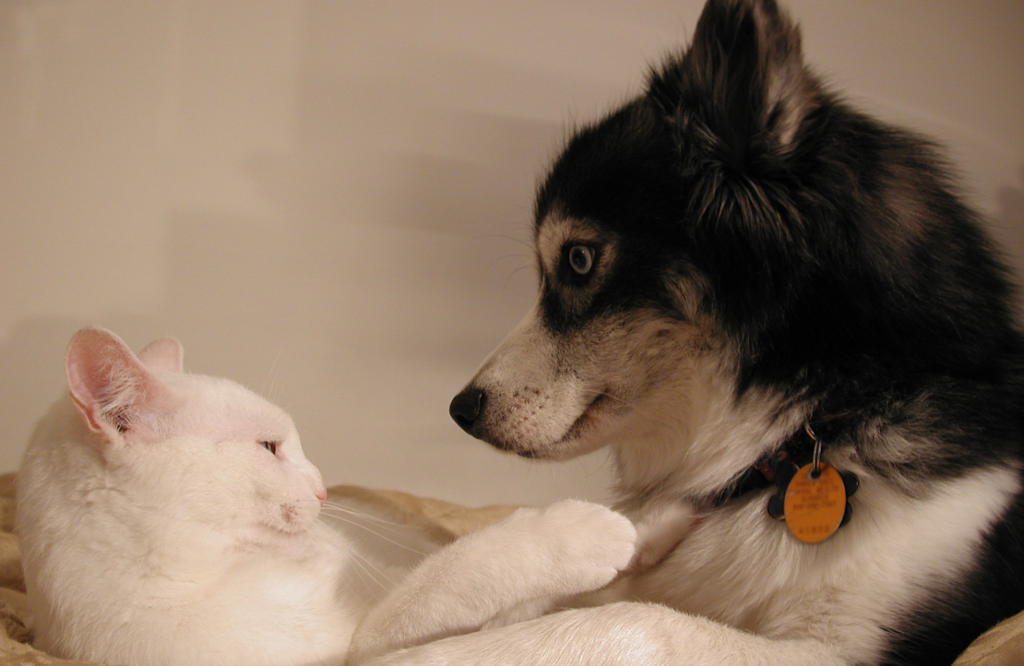

What horrifies me leaves you unconcerned. Why?
“Politics,” Henry Adams observed at the turn of last century, “has always been the systematic organization of hatreds.” It’s a hard observation to argue with during our quadrennial exercise at national self-redefinition. It’s one of the reasons the pious of earlier generations often avoided politics on principle: Like alcohol or lewd entertainments, politics excites passions that drive you to feel, say, and do things against your higher commitments. Passions seek mastery, and we know what Jesus said about trying to serve two masters.
Perhaps with 38 Special you think you can get involved but “hold on loosely.” That’s where Adams’s organizers of hatred step in. Has God indeed forbidden you to hate literal Nazis? You might answer, “Surely not.” What about quasi-fascists who flirt with vague notions of a racially pure homeland, protected by an authoritarian who abuses power to drive out those he says are poisoning the blood of the country? Now, what about those who disagree with such notions but support an aspiring leader that holds them, for reasons of economic self-interest or sheer partisanship? Aren’t they just as bad, or possibly worse, since they know what it is they do? And what of those who are duped by them? Don’t they have a responsibility to be better informed citizens? Are they not deserving of your contempt?
And what of violence? Does not God himself hate it? Shouldn’t you? What about those whose incendiary language incites violence? What about ridiculous claims regarding a candidate’s supposed fascism that inspire assassination attempts? Are they not hurting our nation as much as the assassin himself? What about the media that amplifies and repeats these claims to drive viewership? Are they not endangering the republic? What of those who use accusations of fascism to fire up the base? Isn’t cynicism like that deplorable? How can you not hate those who are doing that to the nation just to claim an office?
It’s not hard to see why the professionals are so successful at organizing our hatreds. We give them a lot to work with. And some things merit hatred. Imperfect as we are, however, our hatred can be scatter-shot, misdirected, easily manipulated. So our politics, political theorist Damon Linker observes, “now often feels like a civil war conducted by other means.”
The scariest part is how good it can feel to hate. Our problem isn’t that we don’t know how to avoid hating. It’s that we don’t want to avoid hating. If that’s our condition, we have given “place to the devil”, and arguments can’t heal us. I’ll leave that dilemma to the pastors.
Rodney King spoke some great theology in 1992, as Los Angeles went up in flames around him: “People, I just want to say, you know, can we, can we all get along? Can we get along? You know, I mean, we’re all stuck here for a while. Let’s, you know, let’s try to work it out.” Easier said than done. I find one of the greatest aids in getting along with those I’m stuck here with is a Harvard professor who died more than a century ago: William James.
James wasn’t any kind of professing Christian, but his starting place for how we can get along was as theologically sound as it gets: Admit that you’re not God. (Aren’t the most profound–and practical–theological truths always the simplest ones?)
“A divine intelligence” sees everything at once without prejudice, he explained in 1880. “The human mind, however, is constituted on an entirely different plan. It has no such power of universal intuition. Its finiteness obliges it to see but two or three things at a time. The human mind is essentially partial.” It could not function otherwise. From this brute fact of our minds’ limitations James developed his entire psychology, which in turn led to an insight that has surprising moral and political implications: the inevitability of pluralism, because none of us has the same experience as anyone else—not even of the same thing.
The thing is what it is. If we’re each in the presence of that thing at the same time, we’re reacting to that singular it. But our reaction is inseparable from our experience of it, and that experience is uniquely our own.
I come from a dog family and experience a new dog as a familiar if mischievous potential friend; I see bright eyes and a wagging tail. Your first encounter with a dog was when you were bitten and traumatized as a toddler; all you see is teeth. I love the rain because it meant cozy days inside with my farmer grandfather; it rained on the day you buried your mother, and rain has meant grieving ever since. To me, a line in a speech—say one that mentions “immigrants”—calls up my ancestors and Emma Lazarus and my Nigerian doctor. For you it may mean a criminal who harmed a family member or someone who took your job.
Experiences are inevitably partial, says James, selections from the infinite number of facts that are true about any one thing, and we can’t separate them from their associations, labels, or emotions. Call it relativism if you wish, but James wants us to admit that we each live in different worlds, right down to the bottom. Yet it is the commonest of assumptions that What I am experiencing is what another is experiencing—so how can his reaction be so different? Is he a monster?
I don’t mean to minimize the difficulties here. Like you, I am appalled at terrorists slaughtering Israeli children on October 7, 2023. But also, perhaps like you, I don’t exist in a state of perpetual horror at my own country’s slaughter of tens of thousands of children in the bombings of Japan in 1945. Why? Time, nationality, and self-interest aside, we see one situation as lawless terrorism, the other as a moment in a just war. My point isn’t to deny these differences. But note how the same thing—two cases of non-accidental killing of children—become profoundly different experiences for us. If one person can have such starkly divergent reactions to the same thing, how much more a plurality of persons?
I’ve strayed a bit from my original intention to think about how we can all get along. Or have I? Among the unsettling features of our politics is that we are mystified at one another’s reactions. Language that horrifies me leaves you unconcerned. Promises that excite you strike me as absurd.
“Hands off,” James advised. “Neither the whole of truth nor the whole of good is revealed to any single observer, although each observer gains a partial superiority of insight from the peculiar position in which he stands.” Again, it’s no easy task to live this. Even James limited his laissez faire moral to those he deemed “happy and harmless.” But what about our politics these days is harmless? Wherever we locate ourselves, don’t we see harm lurking everywhere in the plans and allegiances of those we disagree with? Isn’t that the rub?
It is, of course. Adopting this perspective doesn’t resolve our differences into harmony. We will still disagree, ferociously at times. We will still be mystified and disturbed by one another. We will still fight. But if we can recall this lesson of William James—that others aren’t just reacting differently to the same thing we are, they are experiencing that thing differently—we might be able to avoid thinking of each other as enemies, let alone as monsters to be destroyed.
John H. Haas is a retired professor of history and Contributing Editor at Current.